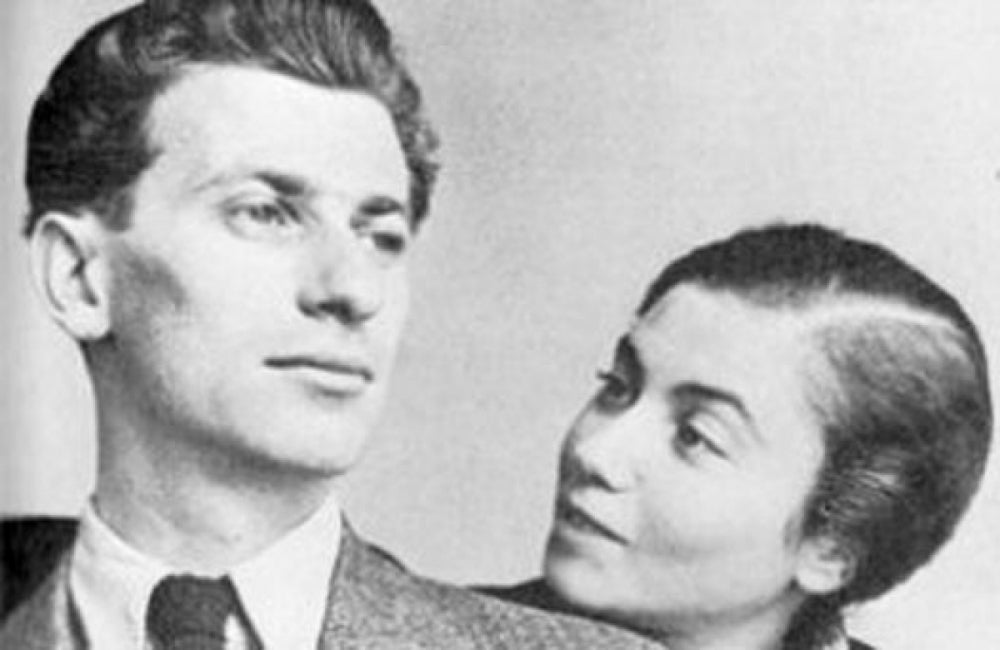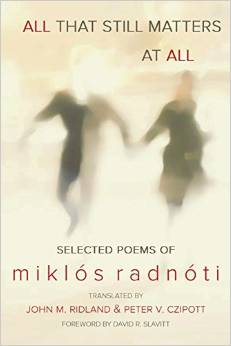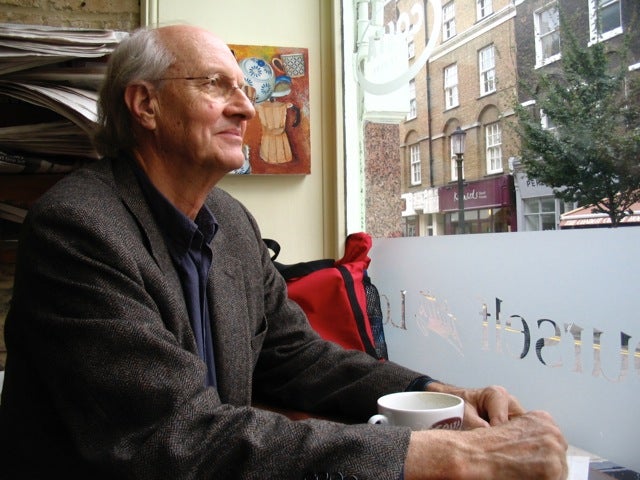
70 Years Later, It All Still Matters


In 1944, on a forced march from Serbia to central Hungary, poet Miklós Radnóti was shot to death and his body dumped in a mass grave. A year and a half later, his remains were exhumed and a small notebook was found in the front pocket of his overcoat. It contained five poems — the last he would write.
Poignant and lyrical, these poems are among the few surviving works of literature written during the Holocaust. Now they are part of “All That Still Matters at All” (New American Press, 2014), a new volume of Radnóti’s work translated by John Ridland, professor emeritus of English at UC Santa Barbara, and Peter Czipott, a California-born scientist of Hungarian descent.
“In Hungary, Radnóti is considered one of the two or three best 20th-century poets,” said Ridland, “not only for the tragedy of his life but for the lyrical excellence of his poems. His reputation was very high even before his terms of slave labor and his murder.”
“All That Still Matters at All” chronicles Radnóti’s poetry — and, in many ways, his adulthood — beginning with the bright and optimistic “Hail to the Sun!” which he wrote in October 1929. As time passed — and Radnóti watched his world unravel — the work became dark and somber. “The poems themselves tell the story of his life,” said Ridland.
“His sufferings were horrendous,” Ridland and Czipott write in the translators’ notes, “and yet he was able to make great poems out of them. The poems were dark and painful, and it is no wonder the literary world has pictured their author as a tragic victim. Yet we agree … he should not be viewed purely as a subject of Holocaust studies, and so we have begun with some of the earlier poems, carefree love lyrics from a time of joy, as the last ones are often love poems from the depths of sorrow and despair.”
Born into an assimilated Jewish family in Budapest, Radnóti converted to Catholicism in 1943 in response to the anti-Semitism that two decades earlier had begun to take hold in Hungarian society. Considered a Jew despite his conversion, as he knew he would be, he was conscripted by the Hungarian army and assigned first to a labor battalion at the Ukrainian front and then to copper mines in Serbia. When Yugoslav partisans advanced, Radnóti’s group of 3,200 Hungarian Jews was force-marched back to Hungary. Few of them made it.
“They were undernourished to begin with, and were being forced to march quickly,” Ridland explained. “Anyone who fell down was shot and buried.”
While Ridland described Radnóti as one of the key literary chroniclers of the Holocaust, he emphasized that Radnóti’s body of work is much broader — temporally as well as emotionally — than what he produced during those war years. “In translations of selected poems of Radnóti, the emphasis usually is on the last poems, the last years, and the tragic nature of them,” Ridland said. “But if you look to the beginning, it’s very happy.”
That is a sensibility he and Czipott sought to capture in their volume, which spans Radnóti’s entire output. Also different from most other translations is their devotion to literal accuracy. “We have insisted on getting all the thoughts in, as it were,” Ridland explained. “In other volumes, editors will skip a phrase because it doesn’t quite fit the form. Also, where Radnóti attempted to rhyme we have done so as well, and where he’s used a regular meter, we’ve done that, too.”
It is worth noting that the translations that comprise “All That Matters at All” were “enthusiastically endorsed” by Fanni Gyarmati Radnóti, the poet’s wife, muse and literary executor, who died in 2014 at the age of 101.
A research professor in the English department at UCSB, Ridland specialized in poetry, verse writing, the American poet Robert Frost and literature of Australia and New Zealand. His poetry and prose have been published in leading American and overseas journals and anthologies such as The Hudson Review; The Robert Frost Encyclopedia; Quadrant and Overland, two leading general journals in Australia; Poets of the American West; Paintbrush; New Zealand Books; the Scottish poetry magazine The Dark Horse; An Exaltation of Forms; and The Hungarian Review.
Ridland’s most recent book of poems, “Happy in an Ordinary Thing,” was published in 2013 by Truman State University Press. Also in 2013, Ridland and Czipott published “The Withering World,” a selection of translations from the poetry of Sándor Márai, and Ridland himself translated the Middle English masterpiece, “Sir Gawain and the Green Knight,” which was printed in a limited fine edition by Juan Pascoe’s Taller Martín Pescador in Tacámbaro, Michoacán, Mexico.
In 2014, Askew Publications issued in newspaper format “A. Lincolniad,” Ridland’s 2000-line mock epic poem about Abraham Lincoln, both bawdy and historically responsible.



